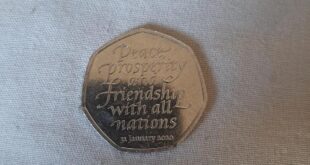Prince Charles speaks during the opening ceremony of the Commonwealth Heads of Government Meeting, in Kigali, Rwanda, on June 24.Dan Kitwood/The Associated Press
Commonwealth leaders settled in 2018 that Britain’s Prince Charles should succeed his mother Queen Elizabeth as head of the organization, but as they gathered again in Rwanda some Caribbean member states were not at ease with the decision.
The 54-nation club made up mostly of former British colonies presents itself as a partnership of equals and says the British monarch is not automatically its figurehead, yet so far the baton has passed from the queen’s father to herself to her son.
“It’s a matter that I think should be under review,” said Eamon Courtenay, foreign minister of Belize, one of 12 Commonwealth member states in the Caribbean, a region where post-colonial ties with Britain are being questioned.
In November last year, Barbados ditched the queen as head of state, with Charles standing sombrely in attendance as the royal standard was lowered in Bridgetown. Since then, Jamaica has signalled it may soon follow suit.
Both nations remain members of the Commonwealth.
Caribbean ministers who spoke to Reuters on the fringes of the Kigali summit said they had no problem with Charles as a person, but were uncomfortable with the symbolism of a royal succession.
Courtenay said that with former French colonies Gabon and Togo poised to join the Commonwealth, it made even less sense for the leadership to pass from one British monarch to the next.
Charles has not addressed the succession issue in public. His son Prince William has said that what mattered to him was not who the Commonwealth chose to lead it but rather its potential to create a better future for its people.
Camillo Michael Gonsalves, finance minister of St Vincent and the Grenadines, said the succession plan was at odds with the Commonwealth’s claim to be a modern, multinational institution.
“You don’t find that in any other major diplomatic body. And I think it’s an error that perpetuates some of the very unfortunate history of the Commonwealth,” he said.
He was referring to Britain’s imperialist past and role in the slave trade, painful legacies which tend to be brushed under the carpet at Commonwealth meetings but which Charles himself unexpectedly raised in a speech at the Kigali summit on Friday.
“I cannot describe the depths of my personal sorrow at the suffering of so many as I continue to deepen my own understanding of slavery’s enduring impact,” he said.
More than 10 million Africans were shackled into the Atlantic slave trade by European nations between the 15th and 19th centuries. Those who survived the brutal voyage ended up toiling on plantations in the Caribbean and the Americas.
Some Caribbean politicians raised the issue of reparations for slavery, which Charles did not mention in his speech.
“Because of the labour of our forefathers … these (slave-trading) countries developed wealth. I believe it’s time that there be some form of payback for what we suffered as slaves during these colonial times,” said Philip J. Pierre, prime minister of St Lucia.
Gonsalves said the Commonwealth summit should be tackling reparations.
“We have to use entities like the Commonwealth to move that conversation forward. Caribbean countries will certainly be discussing it in closed-door meetings but I think it’s something that should be part of the agenda.”
Our Morning Update and Evening Update newsletters are written by Globe editors, giving you a concise summary of the day’s most important headlines. Sign up today.
Source link



